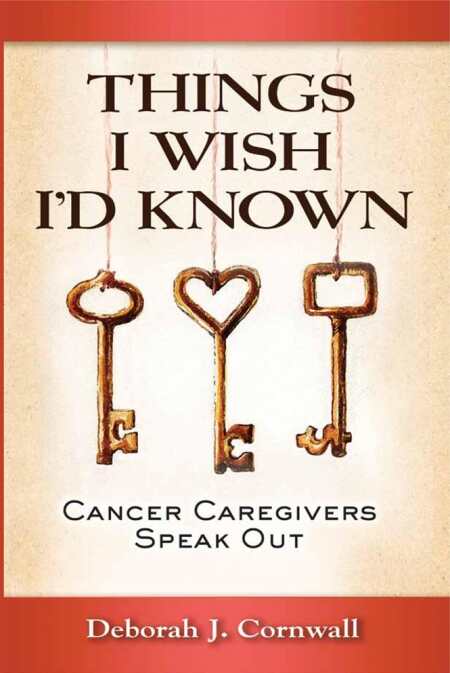
Things I Wish I'd Known
Cancer Caregivers Speak Out
“Wish I’d known that!” is an exclamation that Deborah J. Cornwall’s Things I Wish I’d Known aims to eliminate, easing some of the frustration for cancer caregivers by providing them with information and resources to navigate their uncertain and emotionally charged experiences supporting others. Although Cornwall speaks directly to caregivers, this book may also be useful to cancer educators and counselors working with families experiencing cancer of any variety or severity.
Cornwall is a cancer survivor and has worked as a volunteer, consultant, and on the board of directors of the American Cancer Society. She interviewed eighty-six individuals whose caregiving experience ranged from four days to twenty-three years. Cornwall incorporates their voices into the text, making her advice more powerful. Since these accounts are italicized in the text, thumbing through may lead a reader to a memorable story. Judy’s husband, for instance, recalls his breakdown in the breakdown lane of the expressway and the state trooper who gave him the time and space to deal with his emotions then made sure he got home safely. Reading these stories is like being part of a 24/7-support group.
Things I Wish I’d Known does not need to be read sequentially. Chapter titles will clearly lead a surveying reader to the part of the book he or she needs. Chapters address the stages of both a patient’s and caregiver’s journey. The first five focus on dealing with the diagnosis. This section overflows with practical advice. For instance, Cornwall doesn’t just advise asking questions, she provides important questions to ask. Chapters six through eleven deal with issues connected to treatment. True to the focus of the book, chapter eleven is dedicated to the physical and emotional health of the caregiver and uses academic research to enhance the voices of the author and interviewees. The last section of the book also draws on academic research to discuss end of life choices. Cornwall never shies away from the most difficult aspects of her topic.
Many of the interviewees dealt with very serious situations—late stage, rare, or unusual cancers. In spite of these dire circumstances, the underlying message of this book remains positive: “it’s not when you were born or when you died that matters, but it’s what you did in the middle.”
Reviewed by
Geraldine Richards
Disclosure: This article is not an endorsement, but a review. The publisher of this book provided free copies of the book and paid a small fee to have their book reviewed by a professional reviewer. Foreword Reviews and Clarion Reviews make no guarantee that the publisher will receive a positive review. Foreword Magazine, Inc. is disclosing this in accordance with the Federal Trade Commission’s 16 CFR, Part 255.
